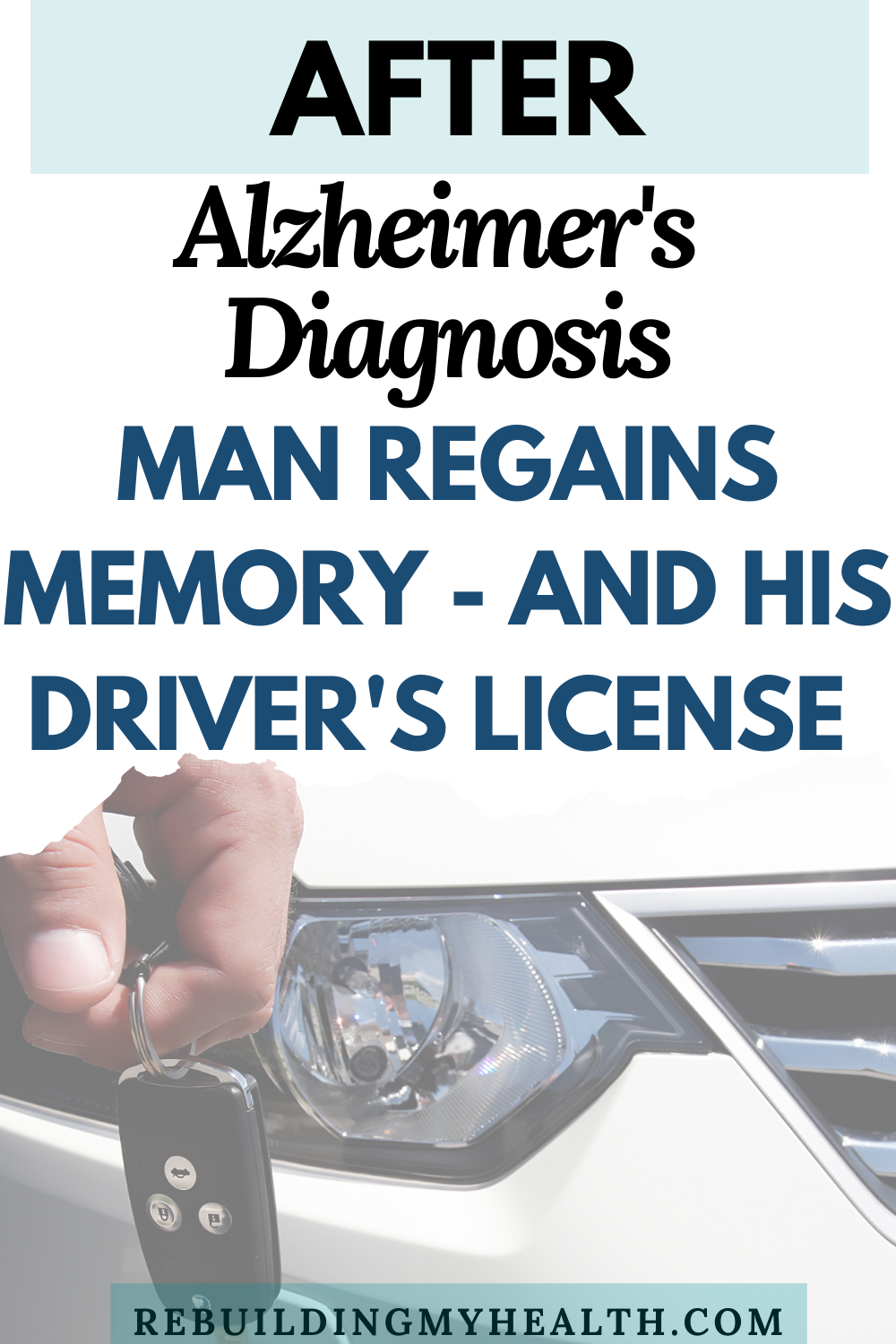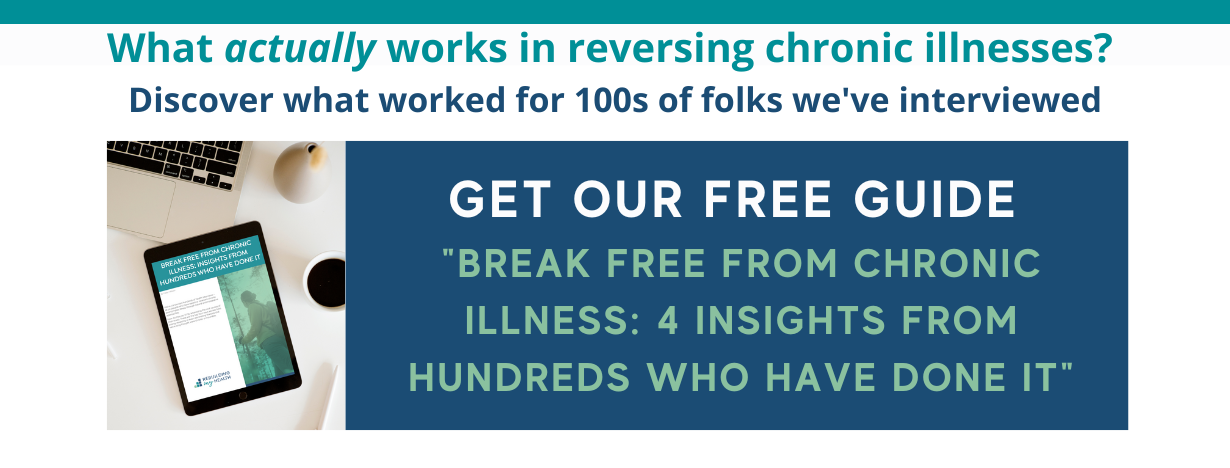After Alzheimer’s Diagnosis, Man Regains His Memory – and His Driver’s License
Ron, with a Ph.D. in clinical psychology, had always been an avid reader with a powerful memory. So when, in his late 60s, he noticed he couldn’t recall information he had recently read, he began to worry.
“I had to go over things over and over again to retain them,” he says.
Concerned, his primary care doctor referred him to a neurologist, who performed what’s called a “pencil and paper” test, in this case the Montreal Cognitive Assessment, or MoCA. The test assesses various functions to gauge a patient’s cognitive health as accurately as possible.
Ron scored a 21 out of a possible 30, with a 26 and above considered to be normal. In response, his doctor delivered a daunting diagnosis.
“He told me that I had mid-level Alzheimer’s disease and that I ought to make plans for going into a nursing home. That the disease was progressive. That it’s not really treatable,” Ron recalls.
As Ron digested what this meant, he was dealt another blow. Within a month of his diagnosis, he had his first car accident in more than 30 years. Concurrently, his doctor had reported the Alzheimer’s diagnosis – as is required by law – leading the Department of Motor Vehicles to revoke his driver’s license.
No Magic Medication for Alzheimer’s
Ron’s neurologist had prescribed medication to lessen the symptoms, but a closer look convinced him not to try it.
“Here’s a medicine that supposedly helps you, and its side effect is cognitive blunting,” he says. “I’m not going to take that.”
As a clinical psychologist for decades, Ron knew the brain well. In fact, he had specialized in helping children with learning disorders. Reading Dale Bredesen’s book, The End of Alzheimer’s, bolstered his hope that perhaps something could be done to slow or stop dementia.
“I finally came to the conclusion that the single medicinal treatments that were tried and failed were due to the fact that it’s a multi-factorial illness. It’s not caused by one thing and all the medical researchers are looking for a magic pill,” he adds.
Regaining cognitive function might be possible – if only he could find the underlying causes behind his dementia.
Diabetes and Alzheimer’s Disease
Ron returned to his primary care doctor, who practices with a functional medicine approach – with a focus on finding causes rather than just treating symptoms.
Comprehensive labwork uncovered that Ron was pre-diabetic, a condition he had never suspected before. The diabetes indicator A1c, at 6.4, meant he was almost full-on diabetic. That was a major a-ha, as studies have linked diabetes with cognitive impairment.
He could take insulin for diabetes, but worried that he would have to be on it for the rest of his life. Instead, he tried diet first.
Working with a dietitian, Ron quickly switched to a ketogenic-paleo diet. Studies on low-carb diets, and the keto diet and diabetes, show it can help with weight loss and glycemic control.
He would be giving up gluten, dairy, sugar and most carbs. But it seemed a fair trade in the effort to save his brain.
“I was really motivated and I was also aware of the mechanics of how to change behavior because I was in psychotherapy,” he says. “So I knew how to apply that to myself.”
With diet, he quickly brought his blood sugar back into normal ranges (A1c of 5.8) and dropped 40 pounds along the way.

Going After the Root Causes of Dementia
Meanwhile, he also reached out to Dr. Kat Toups, M.D., functional medicine psychiatrist. Dr. Toups had actually overcome her own early-onset dementia and had gone on to help others do the same.
“Dementia is not a death sentence,” Dr. Toups says. “There are things we can do to reverse it when we know what’s causing it.”
Under the guidance of Dr. Toups, Ron added a number of steps to his regimen to help turn around Alzheimer’s:
- Detox – Blood tests revealed a slew of toxicities for Ron: high levels of lead, mercury, arsenic, rocket fuel, plastics, Styrofoam and mycotoxins. Ron worked to rid his body of toxins with sauna sweats and by taking liposomal glutathione, an amino acid.
“Glutathione is one of the most important and powerful antioxidants in our bodies,” Dr. Toups says. “It’s definitely part of the methylation cycle, which is necessary for detoxification. As people age and accrue higher levels of toxicity, in the form of chemicals and metals, as well as possibly having underlying infections because of the immune system becoming less effective with age, they can deplete their glutathione levels.”
- Supplemental hormones – Ron began taking pregnenolone, the precursor to all hormones in the body.
“The brain has receptors for all of the hormones in both men and women: estrogen, testosterone, progesterone, pregnenolone and DHEA,” Dr. Toups says. “The brain needs these hormones in order to function properly. Our goal is not to give people enough hormones to make them like a 20-year-old, but rather to get them somewhere in the middle of the range to support cognitive functioning. Some people don’t notice that much of a difference [with supplementation], but for other people, it’s a huge difference when they start on hormones.”
- Adrenal support – To support his adrenal glands, which regulate metabolism, the immune system, blood pressure and response to stress, Ron took an herbal supplement, Ribes nigrum. It’s a derivative of the fruit, currants.
- Blood sugar regulation – He added berberine and chromium to help keep his blood sugar levels normal.
- B vitamins – Ron took a mix of essential B vitamins.
- Physical exercise – Ron spent at least 45 minutes a day on interval training. He would run 300 yards and then walk for 100 yards.
- Brain exercises – The app, BrainHQ, helped Ron stimulate growth in the hippocampus, the area responsible for short-term memory storage.
Passing the MoCA Test… and the Driver’s Test
Ron’s diligence delivered results within only a few months. Encouragingly, he noticed he could once again retain what he read.
When he returned to the neurologist, he retook the MoCA test. This time, his score shot up to 29 out of a possible 30 – an improvement that shocked his doctor.
“He said, ’I’ve never seen anything like this before,’” Ron says.
For Ron, the reversal of his Alzheimer’s confirmed he was on the right path. “Your neuropsychology shouldn’t change unless it’s a toxic condition,” he says. “And of course, I had a toxic condition.”
Ten months after Ron lost his license, he returned to the DMV for written and driving tests – with a note from Dr. Toups in hand.
“I really got a kick from filling out his DMV form, and for the diagnosis, I put ‘Alzheimer’s – in remission,'” she says.
While that may have seemed too good to be true, the test administrator agreed with Ron’s doctor.
“The person giving me the driving test said, ‘It doesn’t seem like you have Alzheimer’s. I’ve driven with a lot of people trying to get their licenses back and it doesn’t seem to fit for you,’” Ron says. “And then I passed and got my driver’s license back.”
In the fight against dementia, Ron realizes he’s an outlier. But more likely, he’s a trailblazer.
“In the old way of looking at things, if your brain is injured, it doesn’t come back, which of course many people still believe,” he says. “In the new paradigm, the body and the brain have regenerative forces, which allow for recuperation and reinstatement of your functioning. There are lots of interventions that functional doctors can now apply.”
If you liked this story, you might also enjoy Dementia Researcher-M.D. Reverses Her Own Early-Onset Dementia.
The information on this site is for educational and inspirational purposes only and is not intended to replace the advice of qualified professionals. Keep in mind that what works for one person may not work for another. Always consult your healthcare practitioners before beginning new approaches or treatments. Some links on Rebuilding My Health may be affiliate links. This means that we may receive a commission - with no additional cost to you - if you make any purchases using those affiliate links. Rebuilding My Health is a participant in the Amazon Services LLC Associates Program. Learn more.


